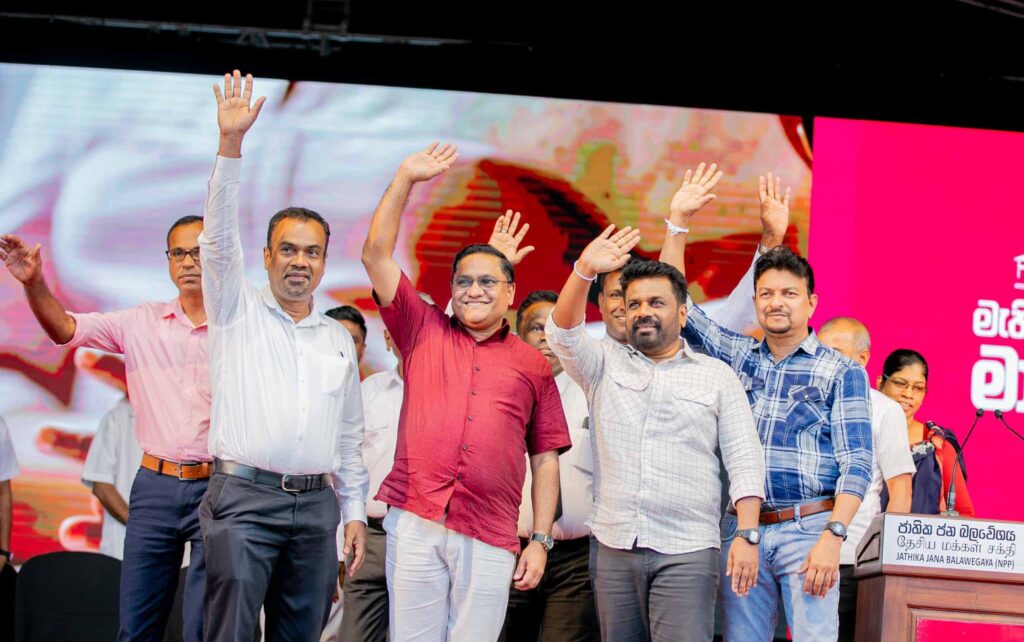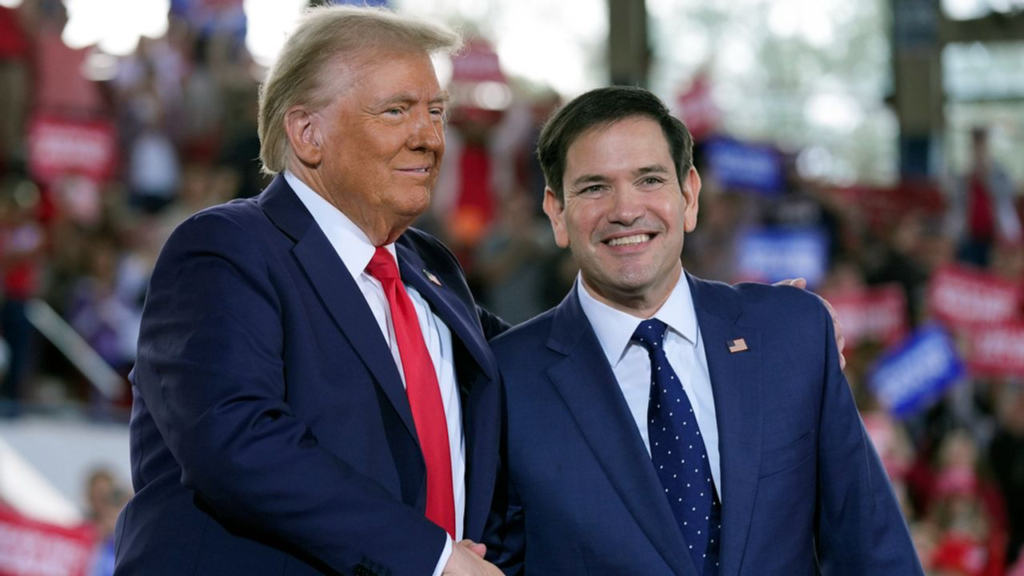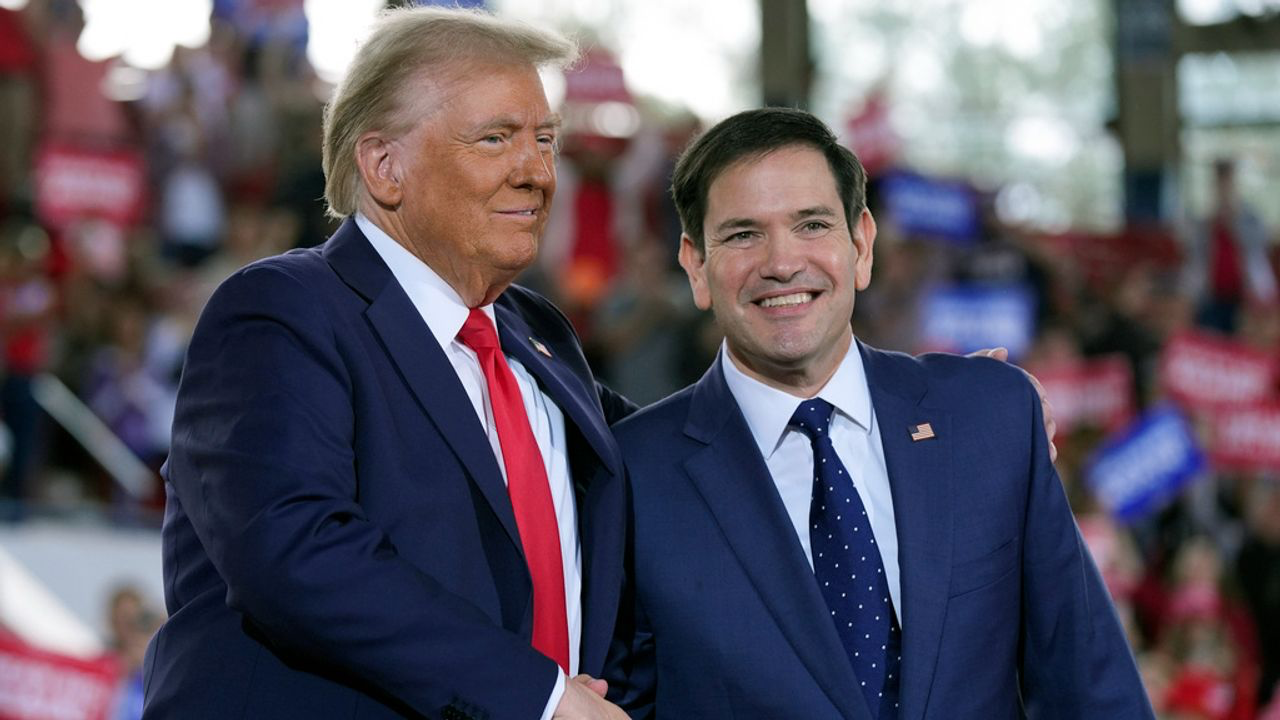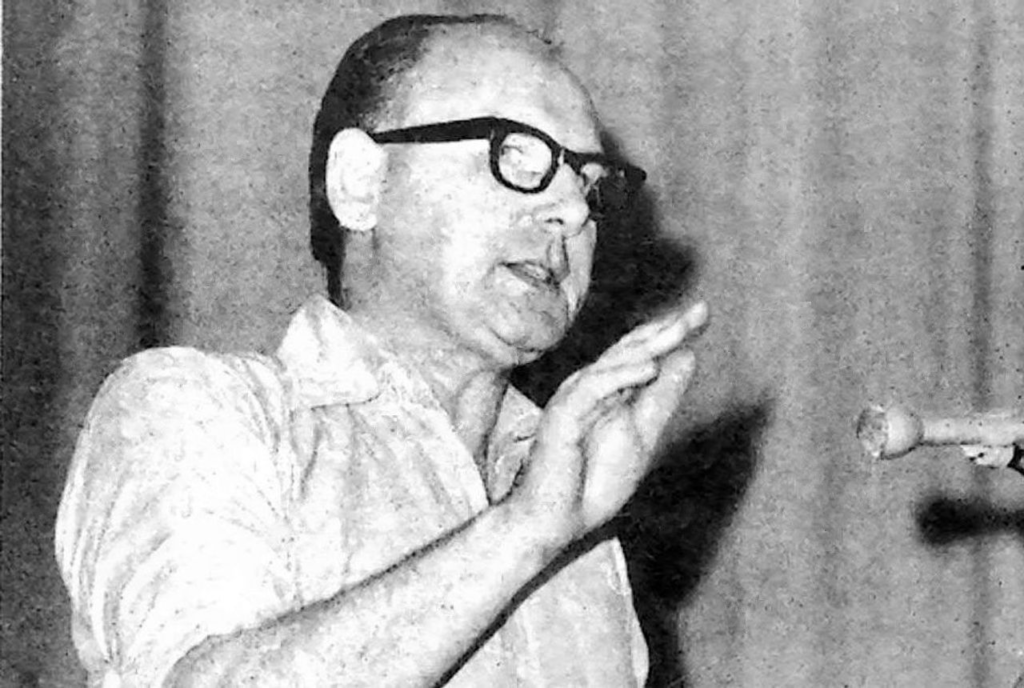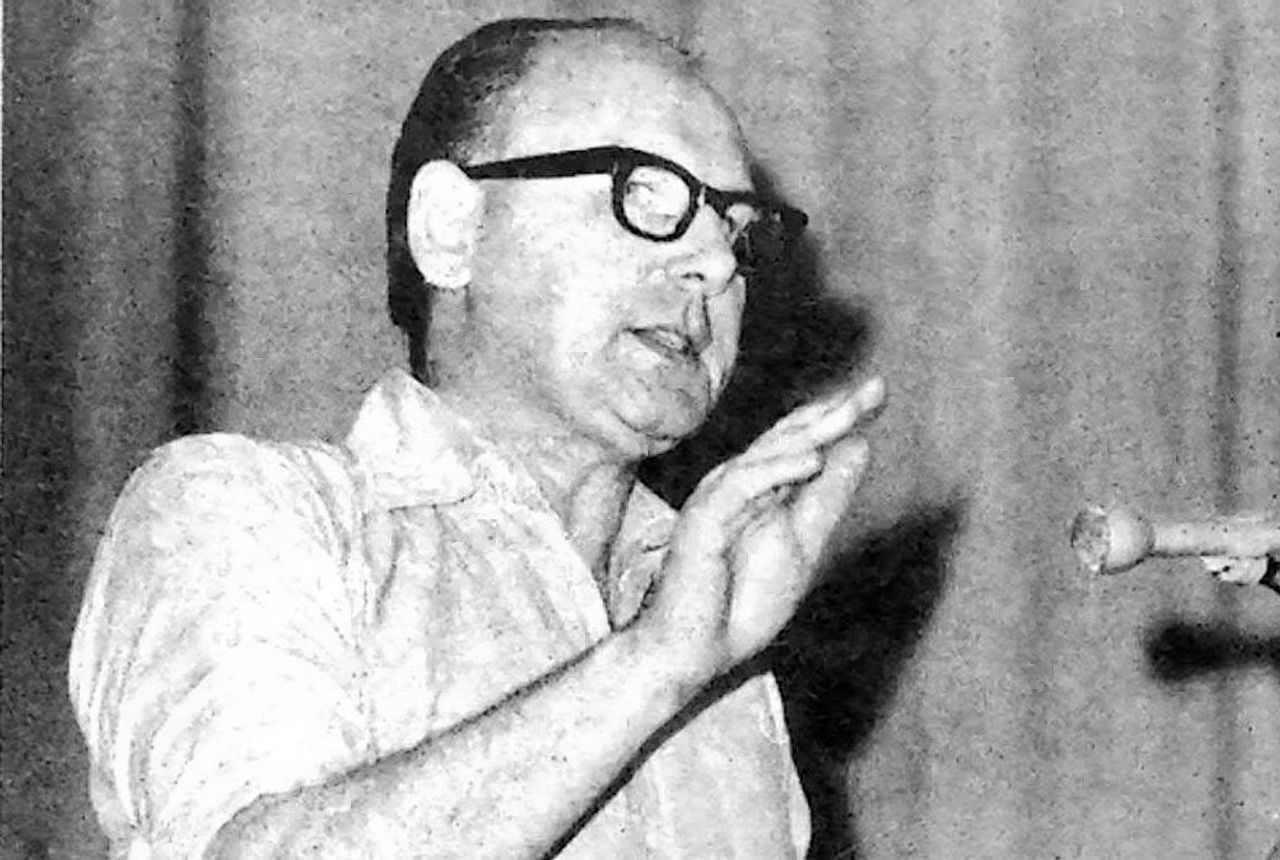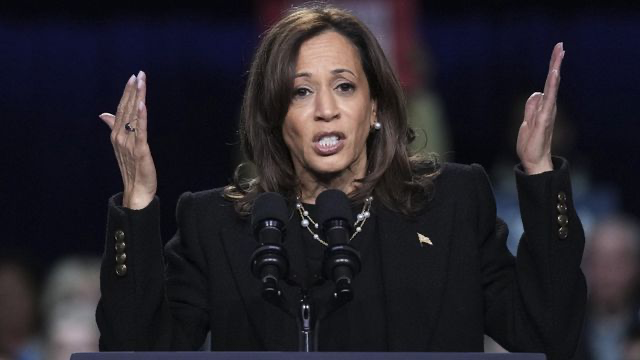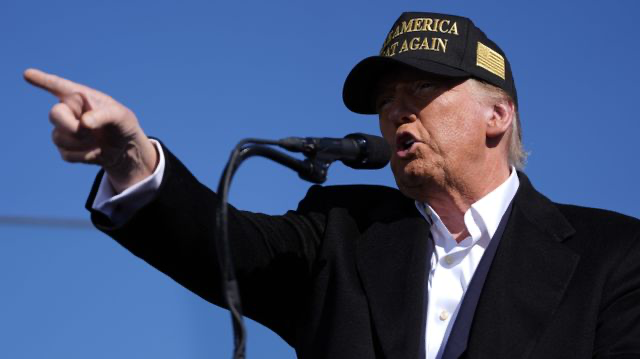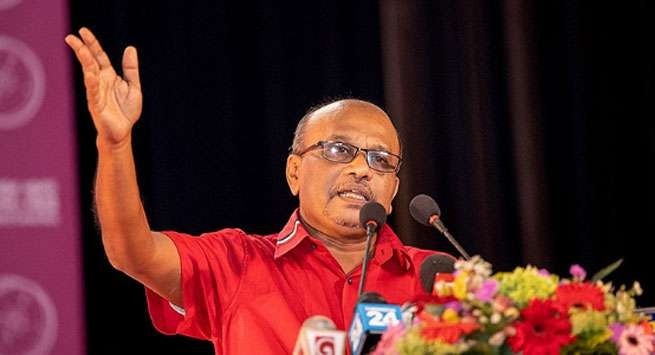ජාමූඅ නියෝග බලාත්මක කිරීමට ශ්රී ලංකාවේ පාලක ජාජබ ශක්තිමත් පාර්ලිමේන්තු බහුතරයක් ලබා ගනී: කප්පාදුවලට එරෙහිව සටන් කිරීමට සසප ගොඩනඟන්න!
ශ්රී ලංකාවේ සමාජවාදී සමානතා පක්ෂයේ (සසප) විප්ලවවාදී වාම කන්ඩායම (ආර්එල්එෆ්) හෙවත් ශ්රී ලංකාවේ සහ දකුනු ආසියාවේ සමාජවාදී නායකත්වයේ (එස්එල්එල්ඒ) ප්රකාශය.
ශ්රී ලංකාවේ මහ මැතිවරණය, පාර්ලිමේන්තුවේ තුනෙන් දෙකකට වඩා වැඩි බලයක් ලබා ගත් පාලක ජාතික ජන බලවේගයේ (ජාජබ) විශිෂ්ට ජයග්රහණයකින් අවසන් විය. ජාජබ යනු සැප්තැම්බර් මැතිවරණයෙන් තේරී පත් වූ විධායක ජනාධිපති අනුර කුමාර දිසානායකගේ පක්ෂය වන ප්රති-මාක්ස්වාදී ජනතා විමුක්ති පෙරමුණ (ජවිපෙ) සමන්විත සන්ධානයකි. 1978 ආණ්ඩුක්රම ව්යවස්ථාව සම්මත කිරීමෙන් පසු ශ්රී ලංකාවේ ධනේශ්වර පාලනයේ ප්රධානම මුක්කුවක් වූ විධායක ජනාධිපති ක්රමයේ කේන්ද්රීය ද්රැවීකරන බලය ප්රතිඵලය මගින් ඉස්මතු කෙරුනි.
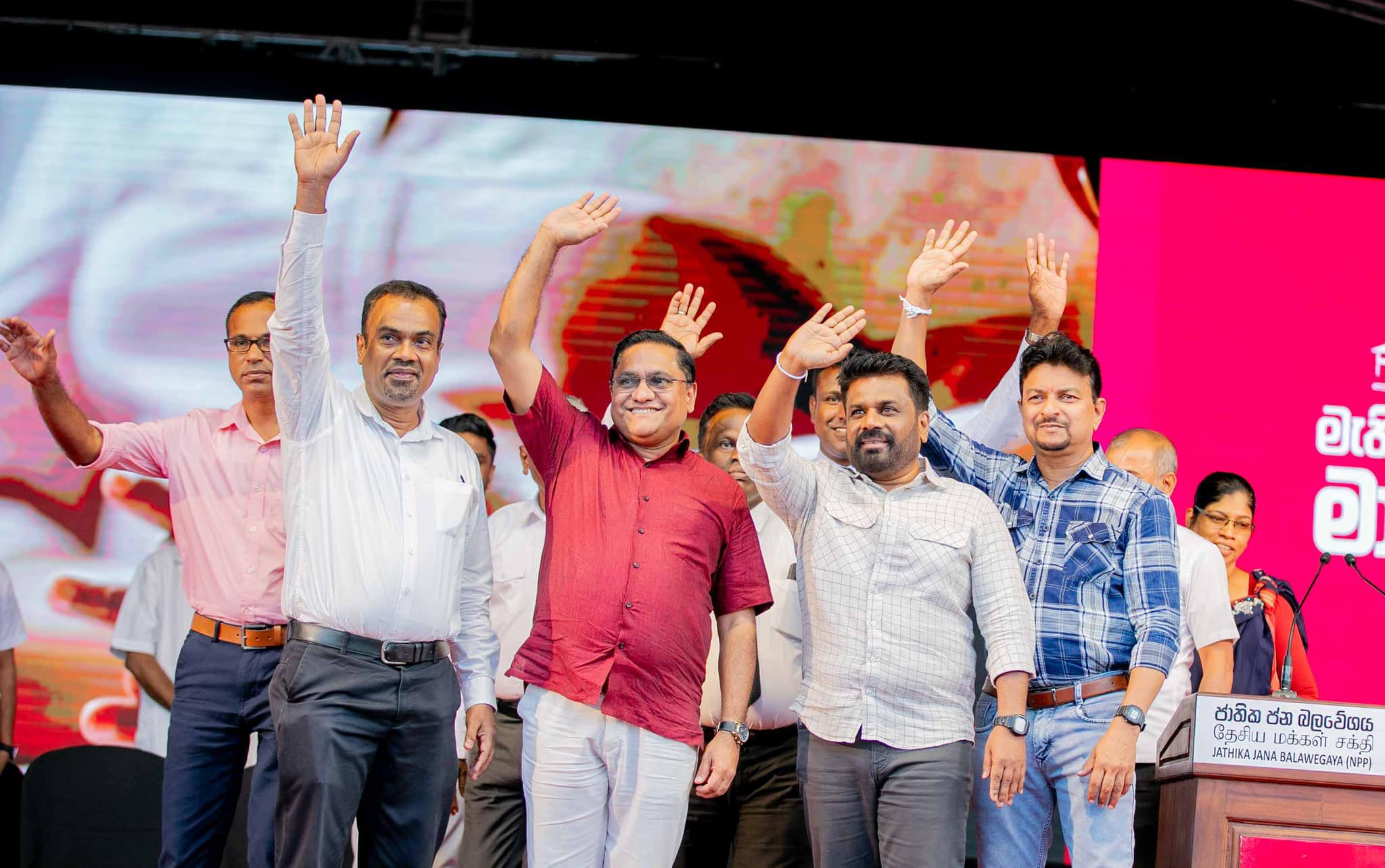
රටේ ජනාධිපති-පාර්ලිමේන්තු ක්රමය තුළ වඩාත්ම ප්රායෝගික තේරීම ලෙස ඔවුන් සැලකූ ජාජබ සඳහා ඡන්දය දීමට මිලියන හයකට අධික ජනතාවක් කැමැත්ත පළ කර ඇත. මෙම තීරණය, ජාජබ විසින් ප්රවර්ධනය කරන ලද සටන් පාඨයක් වන “ස්ථාවර ආන්ඩුවක්” සඳහා වූ ජනතා තේරීම පිලිබිඹු කරන අතර, එය, ජනාධිපතිවරයෙකු සහ වෙනත් පක්ෂයක් විසින් ආධිපත්යය දරන පාර්ලිමේන්තුවක අවශ්යතා අතර කන්ඩායම් ගැටුම් හේතුවෙන් ඇති වූ දේශපාලන අස්ථාවරත්වය පිළිබඳ ඔවුන්ගේ අතීත අත්දැකීම් මගින් මෙහෙයවනු ලැබීය. දක්ෂිනාංශික විරුද්ධ පක්ෂ විසින් දේශපාලන විකල්පයක් ඉදිරිපත් නොකළ බැවින්, ශක්තිමත් හෝ “වෙනස් වූ” විපක්ෂයකට වඩා ශක්තිමත් ජාජබ ආන්ඩුවක් සඳහා ජනතාව මනාපය පළ කර ඇත.
ශ්රීලංපොපෙ-එජාප (ශ්රී ලංකා පොදුජන පෙරමුණ-එක්සත් ජාතික පක්ෂය) කලින් පාලක සභාගය සහ හිටපු විපක්ෂය වූ සජබ (සමගි ජන බලවේගය) ඡන්දදායකයින් ඉදිරියේ තරයේ අපකීර්තියට පත්ව තිබුණි. දිගු කලක් රට පාලනය කළ පරපෝෂිත ප්රභූ පන්තිය කෙරෙහි තිබූ මහා මහජන විරෝධයේ ප්රකාශනයක් ලෙස, ජනතාව 2022 මහජන අරගලයේ “225 ම එපා” යන සටන් පාඨය (පාර්ලිමේන්තු මන්ත්රීවරුන් 225 ගැන වූ සඳහන) ක්රියාව ට නැංවීමේ වේදිකාවක් බවට මහ මැතිවරණය පරිවර්තනය කළහ. ජාජබ මෙම හැඟීම ගසා කෑ අතර, එය පාර්ලිමේන්තුව “පිරිසිදු කිරීමක්” සඳහා වන කැඳවීමක රාමුවක් තුල පිහිටුවීය.
කෙසේ වෙතත්, දිසානායකගේ සියලු ව්යාජ පොරොන්දු සහ ජනප්රිය අලංකාරෝක්තිය තිබියදීම, මැතිවරණ ප්රතිඵලය ජාජබ නායකත්වය කෙරෙහි පුලුල්ව පැතිරුනු විශ්වාසයක් නිශ්චිතවම පෙන්නුම් නොකරයි. 1990 ගණන්වල මුල් භාගයේ සිට ධනේශ්වර ප්රභූ පැලැන්තියේ විවිධ ආන්ඩු සමග හවුල් වී, පාර්ලිමේන්තු දේශපාලනයට අවතීර්ණ වීමෙන් පසු, ඔවුන්ගේ කප්පාදුවලට සහ ප්රජාතන්ත්ර විරෝධී පියවරයන්ට සහාය දැක්වීමේ ඉතිහාසයක් ජවිපෙට ඇත. ජවිපෙ නායකයින් හිටපු ජනාධිපතිනි චන්ද්රිකා කුමාරතුංග යටතේ අමාත්ය ධුර දැරූ අතර, යුද්ධයේ අවසන් අදියරේදී ඇස්තමේන්තුගත දෙමළ ජනයා 40,000 ක් සමූලඝාතනය කිරීමකින් අවසන් වූ උතුරු නැගෙනහිර දෙමළ ජනයාට එරෙහිව හිටපු ජනාධිපති මහින්ද රාජපක්ෂගේ නැවත පණ ගැන්වූ වාර්ගික යුද්ධයට දැඩි ලෙස සහයෝගය දැක්වූහ.
මැතිවරණ තුල දී, පුද්ගලයන්ට වඩා පක්ෂයට ඡන්දය දීමට ජනතාව දිරිමත් කරන බව පවසමින්, නායකත්ව කල්ලිය විසින් තෝරාගත් අය පමණක් ප්රවර්ධනය කෙරුනු අතර බොහෝ දුරට ජනතාව නොදන්නා අපේක්ෂකයින්ට මනාප සඳහා ප්රචාරක කටයුතු කිරීම ජාජබ/ජවිපෙ නායකත්වය විසින් තහනම් කෙරුණි. පක්ෂය උත්සාහ කළේ තමන් “ජනතාවගේ රජයක්” සහ සියලු ජනවර්ගවල පාලනයක් පිහිටුවන බවට ජනතාව ඒත්තු ගැන්වීමට ය. මෙය රැවටිලිකාරී ය.
කම්කරු පන්තිය, නාගරික මධ්යම පන්තිය, ගොවීන්, කුඩා වෙළෙන්දන් සහ තරුනයන් බොහෝ දුරට ජාජබ නායකත්වය විසින් මෙහෙයවනු ලැබුවේ ජාත්යන්තර මූල්ය අරමුදලේ (IMF) (ජාමූඅ) නියෝග ක්රියාවට නැංවීම හැර ශ්රී ලංකාවේ ආර්ථිකය පුනර්ජීවනය කිරීමට විසඳුමක් නොමැති බව විශ්වාස කිරීමට ය. ජාජබ/ජවිපෙ නායකයන් මෙම වෙලඳපොල ගැති වැඩපිලිවෙලේ සැබෑ ඇඟවුම් පිලිබඳව ජනතාව අඳුරේ තැබීමට උත්සාහ කලහ: පුළුල් කප්පාදු ක්රියාවට දැමීම, නව්ය කල වාණිජකරණය සහ පුද්ගලීකරනය, වැටුප් හැකිලීම සහ කම්කරු වැඩවර්ජන මැඩ පැවැත්වීම ආදී හිටපු ජනාධිපති රනිල් වික්රමසිංහගේ ආණ්ඩු සමයේදී වැඩකරන ජනතාව විසින් ප්රතික්ෂේප කල පියවරයන්. දිසානායක ද කම්කරුවන්ගේ අරගල මර්දනය කිරීම සඳහා ආඥාදායක ජනාධිපති බලතල, පාර්ලිමේන්තු බහුතරය, උසාවි, බන්ධනාගාර පද්ධතිය සහ මිලිටරිය මත රදා සිටිනු ඇත.
දිසානායක සහ ජාජබ/ජවිපෙ තුල ඔහුගේ කවය, 2022 මුල්ය බංකොලොත් බව ප්රකාශයට පත් කරන ලද ධනේශ්වර ආර්ථිකය ගලවා ගැනීමේ කර්තව්යය භාරගෙන ඇත. ජාජබ ආන්ඩුව ස්ථාපිත කළ පසු, එය ජාත්යන්තර මූල්ය ප්රාග්ධනය සමග පෙලගැසුණු සහ චීනය, රුසියාව සහ මැද පෙරදිග ඉරානය සමග එහි භූ දේශපාලන ගැටුම් වලදී ඇමරිකානු අධිරාජ්යවාදයට යටත් හවුල්කරුවෙකු ලෙස, දක්ෂිනාංශික හා ජාතිභේදවාදී පාලනයක් ලෙස ක්රියා කිරීමට සූදානමින් සිටී. චීනය සමග යුද්ධය සඳහා වෙලඳ හා මිලිටරි සැලසුම් ඇති, එමෙන්ම, සියලු බටහිර අධිරාජ්යවාදී බලවතුන්ගේ සහාය ඇතිව ගාසා තීරයේ සහ බටහිර ඉවුරේ පලස්තීනුවන්ට එරෙහිව ජන සංහාරක යුද්ධයක් දියත් කර ඇති බෙන්ජමින් නෙතන්යාහුගේ සියොන්වාදී ඊශ්රායල ආණ්ඩුවේ ක්රියා අනුමත කරනා එක්සත් ජනපදයේ තේරී පත් වූ ෆැසිස්ට්වාදී ජනාධිපති ඩොනල්ඩ් ට්රම්ප්ට සහය පළකරමින් ද, එක්සත් ජනපද අවශ්යතා සමඟ සහයෝගයෙන් කටයුතු කිරීමට ඇති කැමැත්ත දිසානායක දැනටමත් සංඥා කර ඇත.
2012 දී තනිකරම උපායශීලී පදනමක් මත කැඩී ගිය ජවිපෙ කන්ඩායමක් වන ව්යාජ-වාම පෙරටුගාමී සමාජවාදී පක්ෂය (පෙසප) විසින් ගෙන ගිය වැඩපිලිවෙලේ බංකොලොත් භාවය ද මැතිවරනය විසින් ඉස්මතු කර ඇත. “පද්ධති වෙනසක්” ඉල්ලා සිටි, පෙර නොවූ විරූ 2022 මහජන අරගල පාවාදීමේ ප්රධාන පාර්ශවකරුවන්ගෙන් එකක් වූයේ පෙසප ය. බලය ලබාගෙන සමාජවාදී ප්රතිපත්ති ක්රියාත්මක කිරීමට පාලක පන්තියට එරෙහිව කම්කරු පන්තිය ස්වාධීනව බලමුලු ගැන්වීමට දැඩි ලෙස විරුද්ධ වූ පෙසප, ජවිපෙ සහ විපක්ෂයේ සජබ විසින් යෝජනා කරන ලද අන්තර්වාර ආන්ඩුවකට සහාය දුන් අතර “පාර්ලිමේන්තුවෙන් පිටත බලයක්” යන සටන් පාඨය යටතේ උද්ඝෝෂනය කළේය. පෙසප, ජවිපෙ නායකයා ඡන්දෙයෙන් තෝරා පත් කර ගැනීම ජනතා අරගලවල ඉල්ලීම ඉටු කිරීමක් ලෙස ලෙස හුවා දක්වන අතරම, මහ මැතිවරනය තුලදී තත්කාර්යවාදී හැරීමක් ගනිමින්, පාර්ලිමේන්තු විපක්ෂයේ නියෝජනය අපේක්ෂාවෙන් ” විපක්ෂය වෙනස් කිරීම” ක් ඉල්ලා සිටියේය.
උතුරේ සහ මධ්යම කඳුකරයේ දෙමළ සුළුතරය බොහෝ දුරට ජාජබ ට ඡන්දය දුන්හ. ශ්රී ලාංකික දෙමළ ජනතාව බහුතරයක් ජීවත් වන යාපනය දිස්ත්රික්කයේ, ජාජබ ජනාධිපති අපේක්ෂක දිසානායක ජනාධිපතිවරණයේදී ලබා ගත්තේ 7.29% ක ඡන්ද ප්රතිශතයක් (ඡන්ද 27086) පමණක් වන අතර, බ්රහස්පතින්දා (14) පැවති මැතිවරණයේ දී එම ජනතාවම 24.85% ක ඡන්ද ප්රමානයක් (ඡන්ද 80830) ලබා දෙමින් ජාජබ ඉහළට ඔසවා තැබූහ. දශක ගනනාවක් තිස්සේ දකුණේ සිංහල ස්වෝත්තමවාදී ආන්ඩු සමග සහජීවනයෙන් සිටි සහ ජනතාවගේ පොරොන්දු ඉටු කිරීමට අපොහොසත් වූ දෙමල ජාතිවාදී පක්ෂ කෙරෙහි ඔවුන්ගේ අතෘප්තිය මෙම ඡන්ද වැඩිවීම තුල කොටසක් ලෙස පිලිබිඹු කරයි. එසේ වුවද, මෙම ඡන්දය, ජවිපෙ ස්වෝත්තමවාදී දේශපාලනය අනුමත කිරීමක් නොව, දිසානායකගේ ව්යාජ පොරොන්දු සහ කොන් කිරීම පිලිබද නොපැහැදිලි තර්ජන වලට මංමුලා සහගත ප්රතිචාරයක් වෙයි.
එසේම, රටේ බොහෝ ප්රදේශවල සුළුතර මුස්ලිම් ප්රජාවන් ද නව රජයේ පොරොන්දු කෙරෙහි තම බලාපොරොත්තු තබා ඇති අතර, ඔවුහු වැඩි කල් නොගොස් දැඩි ලෙස කලකිරීමට පත් වීමට නියමිතය.
පසුගිය මැතිවරණ දෙක පුරාවටම, ජවිපෙ/ජාජබ, පෙසප, සජබ, සහ විවිධ ජාතිවාදී පක්ෂ ඇතුළු සියලුම දේශපාලන පක්ෂ, අනුප්රාප්තික ආන්ඩුවල දූෂණය, අවපාලනය හෝ ජාතිවාදය යන කාරනා කෙරෙහි අවධානය යොමු කරනා’තර සමාජ-ආර්ථික අර්බුදයේ ගෝලීය සහ පන්ති මූලයන් වසන් කරමින් ජනතාව නොමඟ යැවීමට කැපවී සිටියෝය. එසේම, න්යෂ්ටික යුද්ධයේ ආසන්න තර්ජනය, ගාසා තීරයේ ජන සමූල ඝාතනය, ෆැසිස්ට්වාදයේ සහ ආඥාදායකත්වයේ නැගීම සහ යුරෝපයේ ප්රධාන ධනේශ්වර රටවල ද, ඇමරිකා එක්සත් ජනපදයේ සහ චීනයේ ද ගැඹුරු වන ආර්ථික අර්බුදය, ලඹදෙන සෞඛ්ය හා පාරිසරික ව්යසනය යනාදී හදිසි ගෝලීය භූ-දේශපාලන ප්රශ්න වලින් වැඩකරන ජනයාගේ අවධානය වෙනතකට යොමු කිරීමට පන්තියක් ලෙස ඔවුන් ප්රවේශම් විය.
දේශීය හා ජාත්යන්තර මාධ්ය ආයතනවල ව්යාජ නිරූපණයන්ට පටහැනිව, සමාජවාදී ප්රතිසංස්කරණවලට කිසිදු සම්බන්ධයක් නැති ජාජබ ආන්ඩුව තුළ කම්කරු පන්තියට සැනසීමක් නොලැබෙනු ඇත. පාර්ලිමේන්තුව තුළ පුලුල් දේශපාලන බලයක් ඇති ජාජබ/ජවිපෙ ආන්ඩුව, වැඩවර්ජන කිරීමට ඇති අයිතිය ඇතුළුව කම්කරු පන්තියේ ප්රජාතන්ත්රවාදී අයිතීන් කප්පාදු කරන නීති පැනවීමට පසුබට නොවනු ඇත. වර්ගවාදය ඇතුළු අනුප්රාප්තික ආන්ඩු විසින් භාවිතා කරන ලද සාම්ප්රදායික යාන්ත්රණ සහ රාජ්ය මර්දනයේ ක්රමවලින් ඔබ්බට, ජාජබ ආන්ඩුව තමන්ගේම මෙවලම් දෙකක් භාවිතා කරනු ඇත: ඒ, වෘත්තීය සමිති නිලධරය සහ රටේ ග්රාමීය සහ නාගරික ප්රදේශ වල හොඳින් ජාලගත වූ ජාජබ/ජවිපෙ සුලු ධනේශ්වර කොටස් ය. මෙම බලවේග 1980 ගනන් අග භාගයේ ඔවුන්ගේ අඳුරු ඉතිහාසය ප්රතිනිර්මාණය කරමින් දේශපාලන විරුද්ධවාදීන්ට සහ කම්කරු පන්තියට එරෙහිව ෆැසිස්ට්වාදී බලවේග ලෙස බලමුලු ගැන්විය හැකිය. මෙය කම්කරු පන්තියට දැඩි අනතුරු ඇඟවීමකි.
ලෝකය, න්යෂ්ටික යුද්ධයේ, ආඥාදායකත්වයේ, ෆැසිස්ට්වාදයේ සහ කප්පාදුවේ යුගයකට අවතීර්ණව ඇත. සෑම රටකම කම්කරුවන්, තමන් මුහුණ දෙන මෙම ගෝලීය ප්රශ්නවලට එරෙහිව සටන් කිරීමට අධිෂ්ඨානවත් වනු ඇත. ශ්රී ලංකාවේ සහ කලාපයේ ජනතාව මුහුණ දෙන එදිනෙදා ජීවන ගැටලු මූලික වශයෙන් ස්වදේශිකව සම්භවිත ඒවා නොව, එක්සත් ජනපද මූල්ය වංශාධිපතිත්වය විසින් නායකත්වය දෙන ගෝලීය අධිරාජ්යවාදී ක්රමයේ ප්රතිවිරෝධතා වලින් පැන නැගුනු ඒවාය. මෙම ගැටළු ගෝලීය වන අතර ජාත්යන්තර විසඳුම් අවශ්ය වේ.
සමාජවාදී රේඛා ඔස්සේ ගෝලීය ආර්ථිකය ප්රතිසංවිධානය කිරීමටත් , අධිරාජ්යවාදී ක්රමයට එරෙහිව ඔවුන්ව මෙහෙයවීමටත්, ධනේශ්වර පන්තියෙන් දේශපාලන පාලනය දිනා ගැනීම සඳහා ඔවුන්ගේ කාර්මික බලය බලමුලු ගැන්වීම සඳහාත්, ශ්රී ලංකාවේ සහ දකුනු ආසියාවේ ඇතුළුව ලෝකයේ ජනතාවට ජාත්යන්තර කම්කරු පන්තියේ බහුජන පක්ෂයක් අවශ්ය වේ. ජාජබ/ජවිපෙ, අනෙකුත් දක්ෂිනාංශික දේශපාලන පක්ෂ සහ ව්යාජ වම සමග සම්බන්ධ වෘත්තීය සමිති නිලධරයට එරෙහිව ස්වාධීන කම්කරු කමිටු පිහිටුවීම සහ ජාතික බෙදීම් සහ ජාත්යන්තර දේශසීමා හරහා මෙම කමිටු ප්රජාතන්ත්රවාදීව එක්සත් කිරීම, කම්කරු පන්තිය, තරුනයින් සහ පීඩිත ජනතාව අද මුහුණ දෙන කර්තව්යයයි.
මැතිවරන කාලය තුල මෙම වැඩපිලිවෙල පෙරට ගෙන ඒ සඳහා උද්ඝෝෂනය කලේ, හතරවන ජාත්යන්තරයේ ජාත්යන්තර කමිටුව (හජාජාක) සහ එහි ශ්රී ලංකා ශාඛාව වන ශ්රී ලංකාවේ සමාජවාදී සමානතා පක්ෂය (සසප) පමණි. කප්පාදුවට, ආඥාදායකත්වයේ අන්තරායට, යුද්ධයට හා ෆැසිස්ට්වාදයට එරෙහිව සහ සමාජවාදී ප්රතිපත්ති සඳහා වන මෙම වැඩපිලිවෙල සඳහා සටන් කිරීමට ශ්රී ලංකාවේ හා කලාපයේ කම්කරුවන්ගේ මහජන විප්ලවවාදී පක්ෂය ලෙස සසප ගොඩනැගිය යුතුය.
[මෙය the socialist.lk වෙබ් අඩවියේ නොවැම්බර් 16 දින ඉංග්රීසියෙන් පලවූ ලිපියේ සිංහල පරිවර්ථනය යි.]

